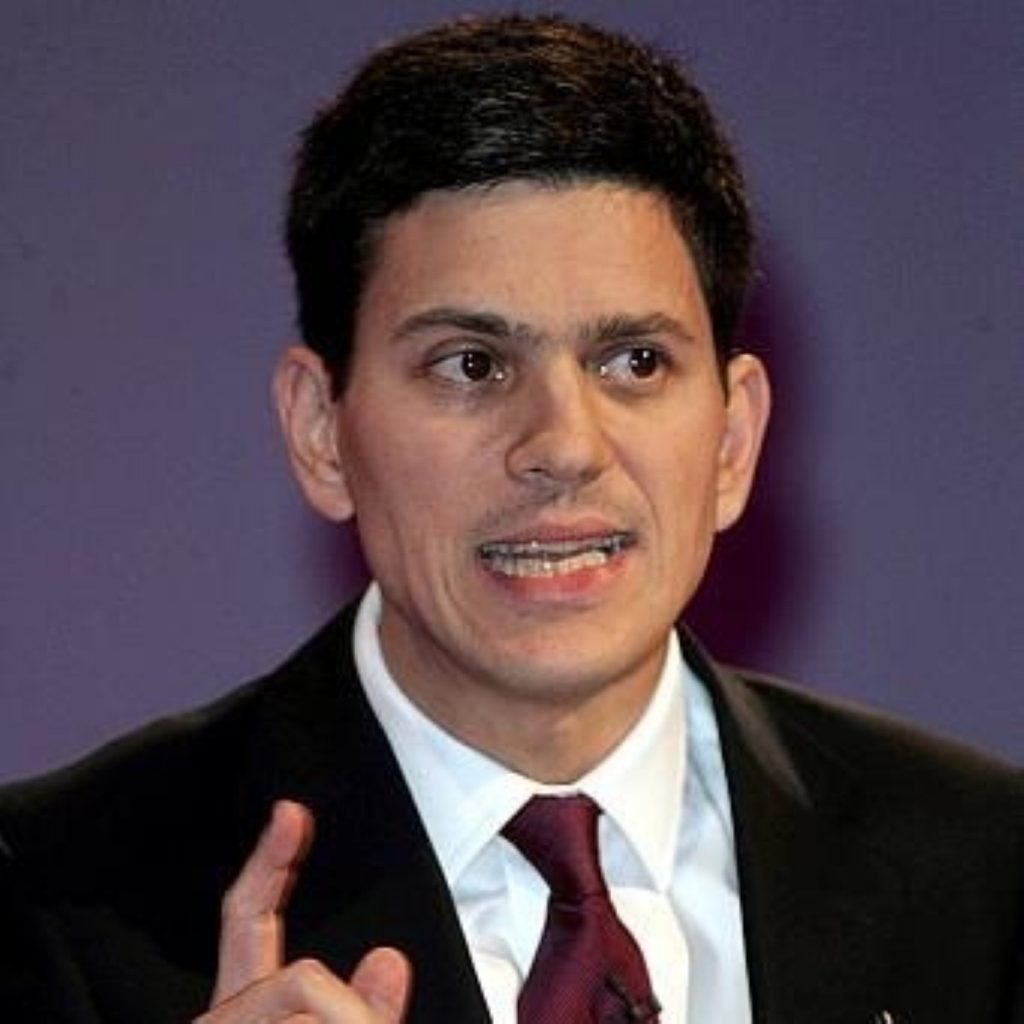Miliband launches new era of foreign policy
David Miliband today set out the “second wave” of New Labour foreign policy.
Although striking a marginally less bellicose tone than Tony Blair’s “ethical foreign policy”, he gave little indication of real substantive change and affirmed the UK’s commitment to working with American and Europe.
The foreign secretary said the first ten years of New Labour foreign policy had been “uncompromising” in its defences of values and unapologetic in demanding freedom and democracy for all.
“I believe we were right to do so,” he told delegates at the Labour party conference.


Mr Miliband said he was part of the “optimistic generation”, which had been shaped by the experience of watching the Berlin Wall fall.
He insisted the UK had a vital role to play in world politics and would move forward with “humility but also pride”.
Specific priorities set out by Mr Miliband included a two-state solution for Israel and Palestine, arguing progress was needed to prevent Al Qaeda from using Palestinian suffering as an excuse for violence.
He said the UK must work with Pakistan to build strong, stable and democratic countries in the region. The foreign secretary said he would also work with Iraq’s neighbours to avert civil war and wider regional instability.
Mr Miliband said Britain faced a “real and potent threat” from religious extremists who aim to divide through murder.
The country must also face up to the global insecurity created by economic disparity, as well as the “stark warning” of climate change, he said.
He said he would work with America to build institutions that can re-define global rules to meet these challenges.
In a sceptically received speech, Mr Miliband acknowledged the political fallout from the invasion of Iraq, but reaffirmed his support for the war.
He told delegates: “The war in Iraq was divisive in our party and in our country. It was a huge decision and the passion on all sides was sincere and understandable.
“But whatever the rights and wrong, and there have been both, we’ve got to focus on the future.”
Mr Miliband acknowledged the heavy criticism levelled against the UK for its “special relationship” with Washington. However, he was resolute in defending it, arguing the alliance was built on shared values rather than personality or tactical concerns.
Both Europe and America will be “permanent commitments” he told the audience in Bournemouth.
Europe needed to be outward looking, he said, and avoid institutional naval gazing.
“And that is why the reform treaty abandons fundamental constitutional reform and offers clear protections for national sovereignty.”
The foreign secretary hit out at Conservative calls for a referendum, saying eight members of the Tory shadow Cabinet had blocked a public vote in the Maastricht treaty.
He also warned Europe could not be a “closed Christian club” and called for the inclusion of Turkey as a full and equal member of the EU.

